The perfect steak seasoning is simple: kosher salt applied 40-60 minutes before cooking, freshly ground pepper added just before or after searing, and a herb butter finish. This 3-step method guarantees juicy, flavorful results without special equipment. Forget complicated rubs—proper timing and technique matter more than fancy ingredients.
Based on food science research, this guide reveals exactly how to season steak for maximum flavor and juiciness. You'll learn the right salt type, perfect timing, and simple techniques that transform basic cuts into restaurant-quality meals.
Table of Contents
- The 3-Step Perfect Steak Seasoning Method
- How Long to Salt Steak Before Cooking (The Science)
- Best Salt for Steak: Kosher vs Sea Salt vs Table Salt
- When to Add Pepper to Steak (Critical Timing Mistake)
- Simple 5-Ingredient Steak Rub Recipe That Works
- Best Herbs for Steak and How to Use Them
- Easy Compound Butter Recipe (3 Ingredients)
- Popular Steak Seasoning Styles Around the World
- 5 Steak Seasoning Mistakes That Ruin Flavor
- Steak Seasoning FAQs Answered
The 3-Step Perfect Steak Seasoning Method
Follow this proven sequence for consistently great results:
- Salt generously with kosher salt (1/2 tsp per pound) 40-60 minutes before cooking
- Add freshly ground pepper just before cooking or immediately after searing
- Finish with compound butter during the last minute of cooking
This method works because salt needs time to penetrate and restructure proteins, while pepper burns if added too early. The butter adds richness and carries flavors into the meat.
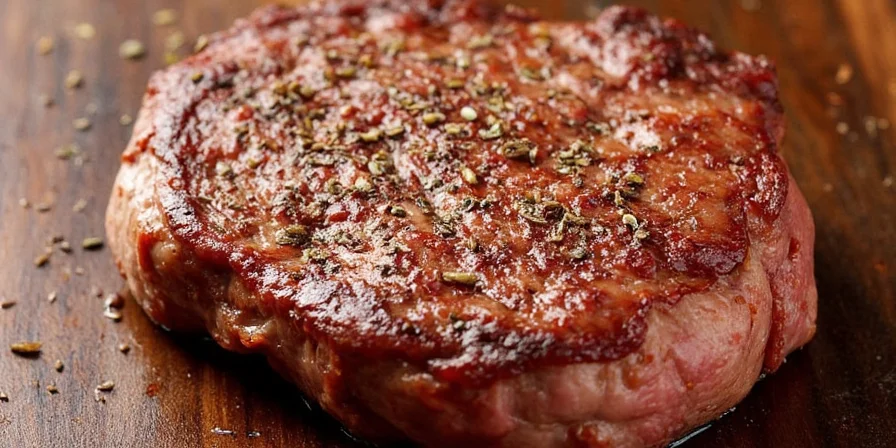
How Long to Salt Steak Before Cooking (The Science)
Salt needs time to work its magic. When you salt steak, here's what happens:
- 0-10 minutes: Salt draws out moisture through osmosis
- 10-30 minutes: Salt dissolves in the extracted moisture, creating a brine
- 30-60 minutes: Meat reabsorbs the brine, seasoning from within
Salting too late (<30 minutes) means your steak loses moisture without reabsorbing it. Salting too early (>2 hours) can make the surface too wet for proper searing.
| Salting Time | Result | Best For |
|---|---|---|
| Under 30 minutes | Moisture loss without reabsorption - drier steak | Avoid this timing |
| 40-60 minutes | Perfect moisture balance - juiciest results | All cooking methods |
| 2+ hours | Surface too wet for good sear | Only if refrigerated |
Best Salt for Steak: Kosher vs Sea Salt vs Table Salt
Not all salts work equally well for steak:
- Kosher salt is ideal for pre-cook seasoning (40-60 minutes ahead) because its flat crystals dissolve slowly and evenly
- Sea salt flakes work best as a finishing salt after cooking due to their larger crystals
- Table salt is too dense and dissolves too quickly, causing uneven seasoning
Use 1/2 teaspoon of kosher salt per pound of steak. For thicker cuts (1.5+ inches), you can increase to 3/4 teaspoon.
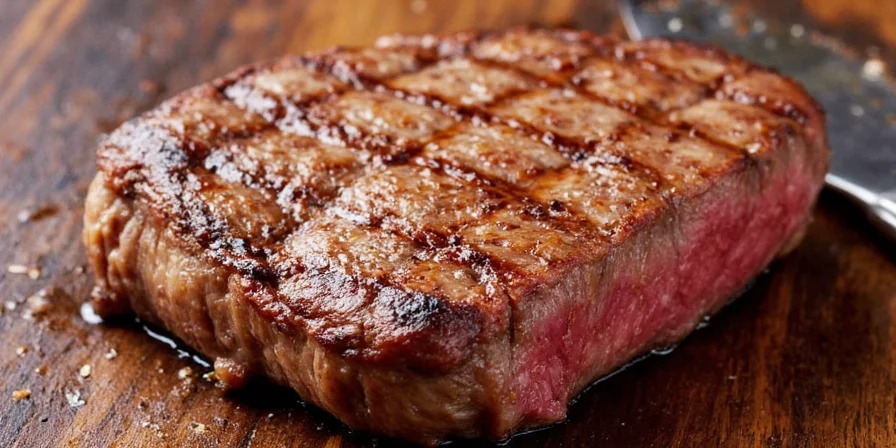
When to Add Pepper to Steak (Critical Timing Mistake)
Pepper burns at high temperatures, creating bitter flavors. This is why timing matters:
- Add pepper within 2 minutes of cooking or right after searing for best results
- Always grind fresh - pre-ground pepper loses 50% of flavor compounds within 30 days
- Coarse grind works best - creates flavor hotspots without burning completely
Adding pepper too early (more than 5 minutes before cooking) causes the piperine (what gives pepper its bite) to break down into bitter compounds.
Simple 5-Ingredient Steak Rub Recipe That Works
For those who want more flavor than just salt and pepper, this basic rub works for most cuts:
- 2 tbsp kosher salt (for protein restructuring)
- 1 tbsp freshly ground black pepper
- 1 tsp garlic powder (not salt - dissolves better)
- 1 tsp onion powder
- 1/2 tsp smoked paprika (adds depth without heat)
Mix ingredients and apply 30 minutes before cooking. This rub enhances flavor without overwhelming the natural beef taste. Don't rub the mixture in - just press gently onto the surface.
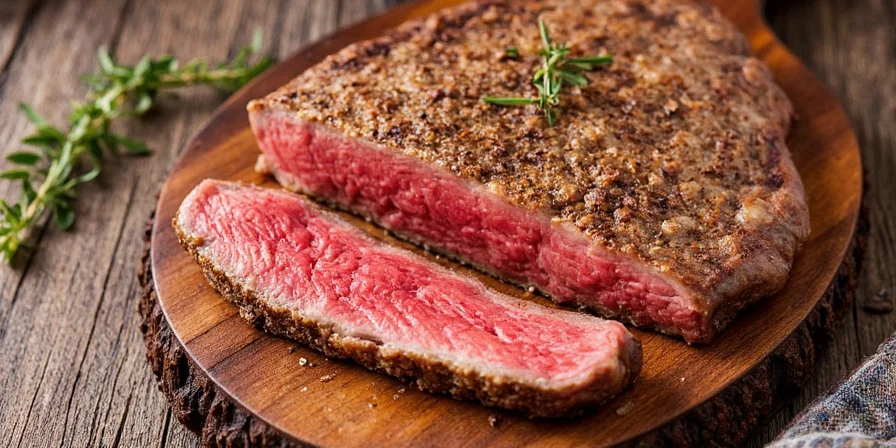
Best Herbs for Steak and How to Use Them
Herbs add wonderful flavor, but work best when matched to your cut:
- Rosemary: Best for fatty cuts like ribeye - its compounds bind to fats
- Thyme: Ideal for leaner cuts like filet - penetrates muscle fibers better
- Allspice: Works with tougher cuts like skirt steak - helps break down connective tissue
Use fresh herbs by placing whole sprigs on the grill grate under the steak, or add dried herbs to your rub. Don't add herbs directly to raw meat more than 30 minutes before cooking - they can make the surface bitter.
| Steak Cut | Best Herb Pairing | How to Apply |
|---|---|---|
| Ribeye, Strip | Rosemary | Place sprigs on grill under steak |
| Filet, Sirloin | Thyme | Add to rub (1/2 tsp dried) |
| Skirt, Hanger | Allspice | Add to rub (1/4 tsp) |
Easy Compound Butter Recipe (3 Ingredients)
This simple butter takes your steak to restaurant level:
- 8 tbsp unsalted butter, softened
- 1 tbsp chopped fresh herbs (parsley or thyme)
- 1 clove garlic, minced
Mix ingredients, roll into a log using parchment paper, and chill for 1 hour. Slice 1/4 inch rounds and place on hot steak during the last minute of cooking. The butter melts, carrying flavors deep into the meat.
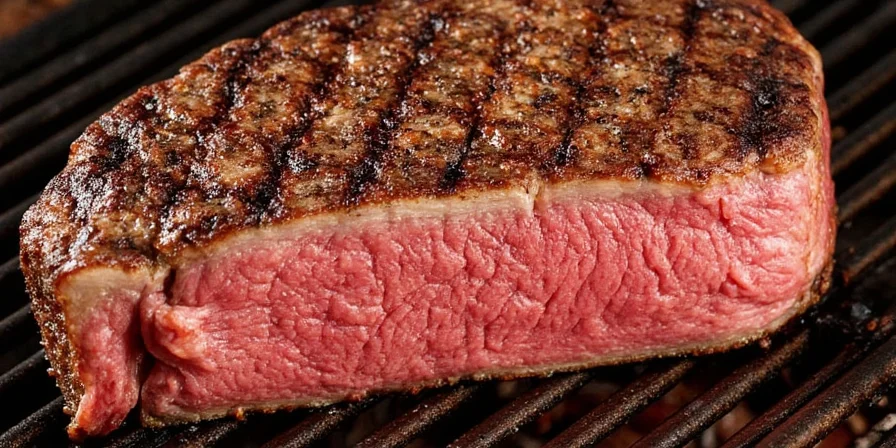
Popular Steak Seasoning Styles Around the World
Try these simple regional variations:
| Style | Key Ingredients | How to Use |
|---|---|---|
| Texas Style | Salt, pepper, garlic powder | Rub on 30 min before grilling |
| Mexican Style | Lime zest, cumin, chili powder | Add zest after cooking |
| Korean BBQ | Soy sauce, sesame oil, garlic | Marinate 2+ hours |
| French Bistro | Butter, thyme, garlic | Add butter during cooking |
5 Steak Seasoning Mistakes That Ruin Flavor
Avoid these common errors:
- Salted too late: Less than 30 minutes before cooking draws out moisture permanently
- Using table salt: Too dense, causes uneven seasoning and surface burning
- Adding pepper too early: Burns and turns bitter during high-heat cooking
- Over-rubbing: Rubbing seasoning into meat damages surface texture
- Using old spices: Most spices lose flavor after 6 months - check by rubbing between fingers
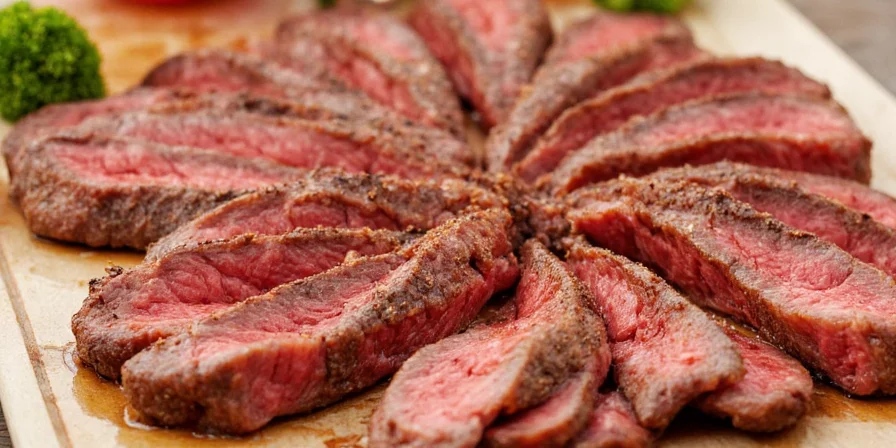

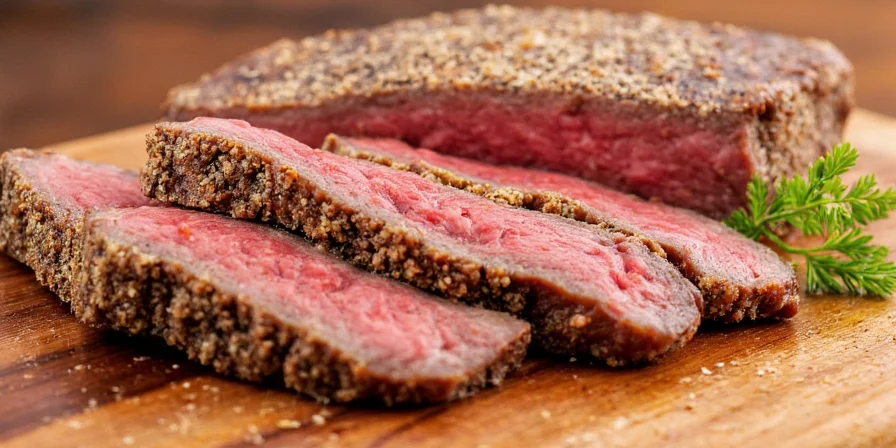









 浙公网安备
33010002000092号
浙公网安备
33010002000092号 浙B2-20120091-4
浙B2-20120091-4